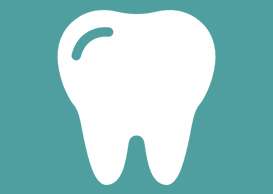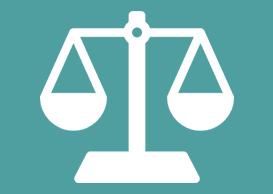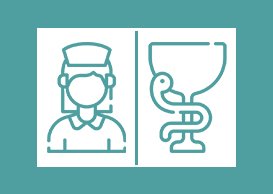| We, members of the Board of Trustees, faculty members, administrators, staff, and students at Dar Al Uloom University, affirm our full commitment to the values and ethical principles according to our religion due to its vital role in achieving our vision and thereby enhancing public confidence by serving our society and international surroundings. We consider ourselves accountable in front of God and before each other in our words and actions, respecting the highest standards of ethics to avoid an improper appearance that might reflect negatively on the university or on our society, God forbid. Dar Al Uloom University also looks forward to being a model for ethical behavior through the promotion of ethical ideals and by instilling a spirit of citizenship in the hearts of our graduates. Each member at DAU is responsible for his/her commitment to these values and ethical principles while doing any activity inside or outside the university.
Fundamental values and principles
The Code of Ethics at Dar Al Uloom University, as an institution of higher education, are rooted in the teachings of our religion, as follows:
- Adherence to Islamic values and the teachings of our religion
- Seeking knowledge is a core principle at Dar Al Uloom University in order to achieve creativity and for the maintenance of academic and intellectual freedom, as well as freedom of expression as an essential principle in achieving knowledge
- Self-esteem requires honesty, transparency, and the ability to take responsibility in front of others, in words and deeds
- Mutual respect and the acceptance of others’ opinions are essential in creating a sense of belonging to the University and for society as a whole
- Justice and equality in dealing with others, as everyone at DAU is considered equal in his/her rights and duties
Integrity
The University is distinguished for its commitment to the standards of academic integrity, scientific research, and other activities, including DAU’s systems, which are derived from Saudi higher education systems, including regulations that deal firmly with all acts contrary to academic integrity, such as distortion of data, cheating on tests and plagiarism, or sabotaging the work of others.
Islamic values
Commitment to Islamic principles in all aspects of university life, respecting other religions, and avoiding any word or act that offends these principles in any way.
Creative activity
Dar Al Uloom University offers all possible means to provide a suitable environment for scientific research (as well as creative work) and to attract local or international funding that is compatible with Islamic values and that would not contradict the policies and ideals of the community.
Attracting students and staff
The University is taking positive steps towards achieving non-discrimination and equal opportunity in the admission of students and the recruitment of cadres in academic and administrative jobs. It is also providing scholarships for students and rewards for staff according to the rules and regulations of the University.
Relations with others
Dar Al Uloom University pays utmost attention to the regulation of relationships among individuals (for both students and staff) balanced and based on mutual trust, respect, dignity, and equality. The University systems do not tolerate any kind of harassment, including violence, intimidation and exploitation, prejudice, abuse of power, or exploitation of any type.
Confidentiality
Working in some of the administrative units at Dar Al Uloom University may require access to sensitive information about students or staff such as medical and disciplinary records, staff salaries, financial records, or the future plans of the University and other sensitive information. The possession of this information is a responsibility that should be dealt with caution in confidentially and is not to be disclosed to any party for any reason.
Conflict of interests
Employees must avoid situations that may make it difficult to achieve the University’s interest. In such situations, it is our duty to notify the Department at Dar Al Uloom University before a potential conflict occurs. Such circumstances include the use of confidential information in the procurement process, the acceptance of competitive bids or gifts, working outside the University, etc.
Use of resources
The University offers many resources to serve students and staff, such as school supplies, staff time, facilities, equipment, and allowances in all of its forms, which are not to be used for personal benefit, with the exception of information systems and in particular the network and e-mail: MyDAU. In this regard, the policy of hardware and digital resources usage at Dar Al Uloom University must be taken into account.
Environment
Dar Al Uloom University aims to protect the environment by using the facilities appropriately, recycling resources, and avoiding circumstances that may lead to environmental hazards.
Explanations
The Code of Ethics mentioned above should not be considered as comprehensive and complete, and they cannot be regarded as a substitute for the rules and regulations of the University. However, as a set of values and principles of ethics that are affiliated with the University, each individual should ask himself/herself the following questions if he/she is in doubt as to whether his/her behavior is consistent with the Code of Ethics mentioned above:
- How is my behavior in front of others at the University?
- Does my behavior affect the reputation of the University?
- Does my behavior seem moral and legal to me?
- What does my conscience dictate to me?
Acts of misconduct
Below are examples of acts that are considered in breach of DAU Code of Ethics.
- Failure to perform duties in accordance with the official Job Description.
- Failure to show respect to colleagues at all times and engaging in any behavior which could reasonably be construed as disrespectful, offensive, or intimidating.
- Disrespectful, obscene, or offensive language or behavior to students at any time while on DAU property or in DAU environs.
- Discussion of topics which could be reasonably construed as being of cultural sensitivity and which could be reasonably expected to cause offense to students bearing in mind the cultural context.
- Harassment of colleagues, students or DAU staff, whether by spoken word (in person, by telephone or through other electronic means), by action or through written means (which shall include but not be limited to paper communication, email, SMS texting or any other electronic means). Harassment is here defined as threatening, annoying or intimidating, whether overtly or by implication, to take unlawful or unwarranted action against another party, in order to coerce that victim into a particular course of action.
- Use of abusive or offensive language in professional dealings with colleagues generally or at any time on DAU property.
- Failure to observe the health and safety rules and regulations of DAU, its buildings, lands and general environs.
- Engaging in any acts which could be reasonably expected to endanger the life, health or welfare of any member of DAU staff or visitors to DAU property.
- Consistent lateness for class and official meetings. An official meeting shall be defined as any meeting which has been reasonably notified in writing in advance, to staff members and which has at least one item on the agenda concerning DAU business.
- Failure to attend class or official meetings without giving adequate notice, or in the event of being able to give adequate notice, failure to provide adequate reason as soon as is practically possible afterwards.
- Consistent failure to dress in accordance with the DAU dress code.
- Possession of materials, written or otherwise, which could be reasonably deemed to be liable to cause offense to colleagues or students.
- Willful efforts to prevent any DAU staff members or parties contracted for service to DAU from doing their duties and fulfilling their contractual obligations.
- Damaging, defacing or otherwise harming any furniture, equipment or materials the property of colleagues, of DAU or of visitors to DAU.
- Stealing or otherwise misappropriating, or being in unauthorized possession of furniture, equipment or materials the property of colleagues, of DAU or of visitors to DAU.
- Being in unauthorized possession of any codes, keys or other means of gaining access to DAU property.
- Unauthorized use, or misuse, of any written text, photographs, graphics, trademarks, slogans or symbols the intellectual property of DAU
- Making unfounded or unjustified derogative comments about DAU or its affairs either in public, or to interested parties (such as students, potential students or the media) in private, which would have the effect of showing any aspect of DAU in a negative light or of creating an undeservedly negative impression of the institution.
- Divulging any confidential aspect of DAU business to third parties (to include students) or discussing any aspect of confidential business with third parties.
- Forming personal friendships with students which could reasonably be perceived as compromising impartiality; this includes (but is not confined to) visiting students’ private homes on a one-to-one basis, inviting students to one’s own private residence and giving any academic or other assistance to students for personal gain or outside of college hours whether for personal gain or not.
- Accepting a gift (whether in the form of cash, material goods, services, entertainment or any other form) from a student which could be construed as having been given expressly with the intention of gaining particular favor for that student, whether in an academic context or otherwise.
- Failure to provide, within reason, official or other documents requested by the HR department or other relevant departments within DAU or of the Dar Al Uloom Company for Education (e.g. passport, Iqama, medical documents, copies of qualifications and work references).
- Failure to represent him- or herself to the head of his department, to a senior member of administration or to the HR department on foot of a written request to do so, without substantial excuse, which should be given in writing.
Acts of gross misconduct
Below are examples of acts that are considered in major breach of DAU Code of Ethics.
- Any act which constitutes a serious breach of the criminal code of the Kingdom of Saudi Arabia.
- Any act of physical bodily assault on any person whatsoever within the confines of DAU and its environs, notwithstanding the provisions of the Saudi criminal code which has universal application within the Kingdom of Saudi Arabia.
- Any wilful act or act of gross negligence, including breaches of the DAU Health & Safety Regulations, resulting in death or serious injury to any persons on DAU property or its environs, notwithstanding the provisions of the Saudi criminal code which has universal application within the Kingdom of Saudi Arabia.
- Any deliberate comments to students which could be reasonably construed as being intended to cause serious harm or offense.
- Making derogatory comments about DAU staff members, students or other parties associated with DAU, in any public forum, whether spoken, expressed in writing or clearly implied.
- Releasing confidential information to third parties concerning the affairs of individual students, such as exam grades and report contents, or discussing same in any way with third parties, without that student’s express consent in writing.
- Releasing classified examination-related materials, such as information on exam papers or parts thereof, to students prior to an examination which could in any way compromise the integrity of such (including future) examinations.
- Deliberately providing false or counterfeit qualifications, or making any claims on the basis of such qualifications, or claims to having such qualifications, in order to gain employment at DAU.
- Providing, or attempting to provide, unlawful substances or materials to students or to other parties associated with DAU, whether on or off the DAU campus, notwithstanding the provisions of the Saudi criminal code which has universal application within the Kingdom of Saudi Arabia.
- Procuring, or attempting to procure, unlawful substances or materials from students or other parties associated with DAU, notwithstanding the provisions of the Saudi criminal code which has universal application within the Kingdom of Saudi Arabia.
Reporting an alleged violation
All members, the Board of Trustees, faculty members, administrators, staff, and students at Dar Al Uloom University are responsible for reporting any violation. Unsigned or anonymous reports are considered slanderous acts that are against the Code of Ethics mentioned above. All violations will be investigated confidentially, without prejudice to the reputation of the person reported and in accordance with the relevant procedures. The accused shall not be responsible for his/her behavior until he proves the charge beyond doubt. |

 College of Medicine
College of Medicine College of Dentistry
College of Dentistry College of Architectural Eng & Digital Design
College of Architectural Eng & Digital Design College of Business Administration
College of Business Administration College of Law
College of Law University Preparatory Program
University Preparatory Program Respiratory Therapy – Nursing
Respiratory Therapy – Nursing Student Affairs Department
Student Affairs Department General Directorate of Planning, Development, and Quality Assurance
General Directorate of Planning, Development, and Quality Assurance Central Library
Central Library